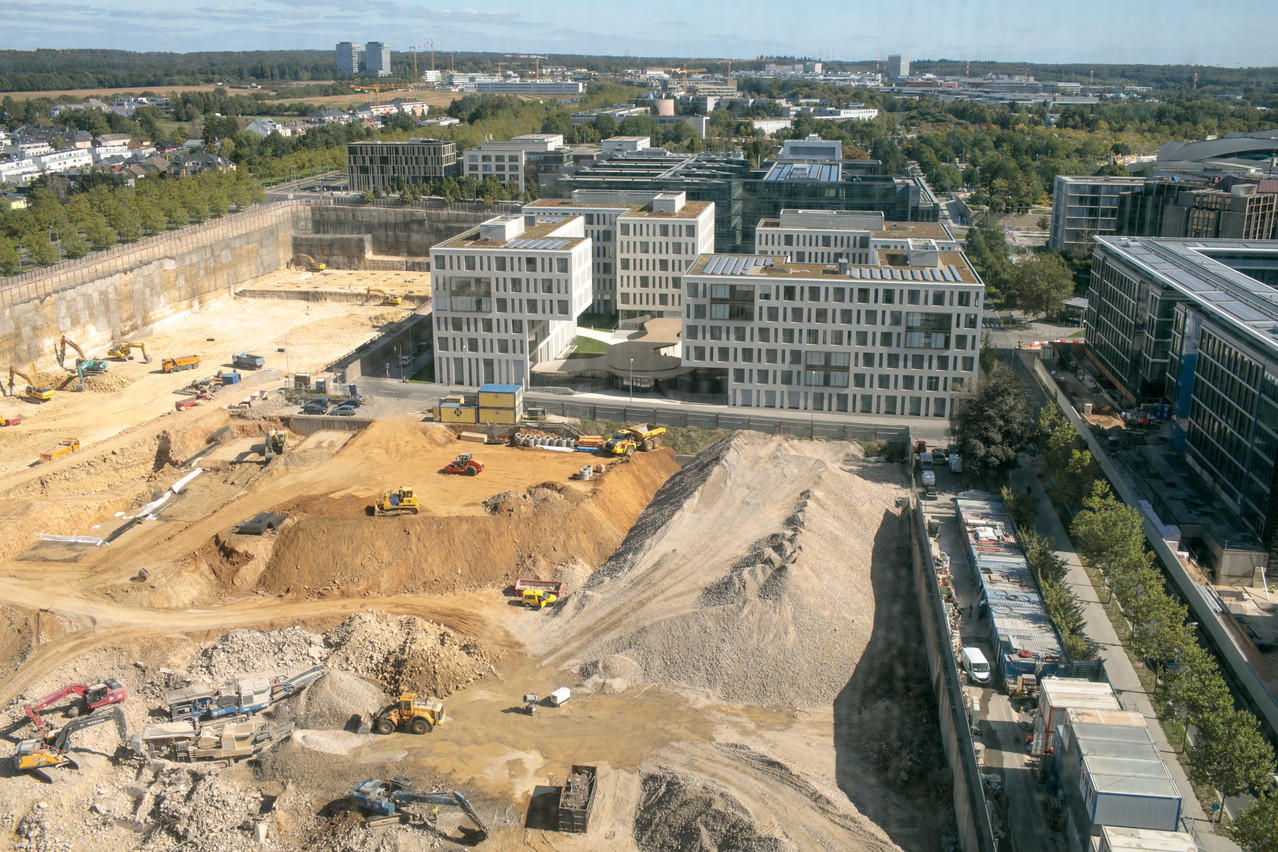This emblematic Kirchberg site goes back a long way... In 2009 to be exact, the European Commission and the Luxembourg state signed a memorandum of understanding for the construction of the new Jean Monnet 2 building, a new administrative complex intended to replace the Jean Monnet building. This concludes discussions launched seven years earlier to define the future accommodation arrangements for the European Commission’s departments.
At the time, the plan was for the building to be completed by 2015. The total cost was €526.3m. Luxembourg undertook to make available and sell to the European Commission for the symbolic price of one euro the land on which the building was to be erected, and to ensure the construction and pre-financing of the project so that it could be made available to the European Commission on a turnkey basis. The European Commission would then reimburse Luxembourg. The cost was increased to €641.5m in the law of 6 December 2016 relating to the construction of the building.
The groundbreaking ceremony took place on 4 June 2018, with commissioning scheduled for 2024. Completion of the works is now scheduled for the end of 2025.
An additional €351m
In the meantime, the bill has risen so steeply that on 21 June Luxembourg’s minister for public works, (DP), had to table bill 8402 on the adaptation of the construction project for the European Commission’s Jean Monnet 2 building in Luxembourg-Kirchberg. The project offers a “maximum” extension of €351m. The project was approved by the cabinet on 22 October. “This adjustment has become necessary as a result of changes to the construction programme, certain bidding overruns and extensions to deadlines,” the project details.
In detail, €43.2m is justified by the adjustment to the programme, €147.8m to deal with site contingencies and €109m by the extension of deadlines. A total of €300m, to which should be added €51m for VAT at 17%.
A cascade of contingencies
The project has given rise to numerous adaptations: a new security concept in 2017; the addition of a reception building; the transformation of the data centre into a car park; and redesigned workspaces, to name the main ones.
There have also been many unforeseen events on site. The bill details them: cost estimates exceeded tender estimates because of the “extraordinary” growth in the half-yearly construction price index--prices had to be adjusted by up to 25%--the increase in the consumer price index (+18.87%) and, “above all,” incomplete studies and tender documents by the project management team, which resulted in “payment for services not provided for or imprecisely described in the tender documents.” The 43.4% increase in the half-yearly construction price index between 2018 and 2023 has added to this bill.
The extension of deadlines is the result of the covid crisis and the aftermath of Russia’s full-scale invasion of Ukraine. As well as increasing costs, these two events combined to cause delays in the delivery of materials, which also weighed on costs. Bill 8402 also points out that “certain extensions of deadlines are caused by inadequate performance on the part of the design offices in charge of the project.” Since the international architecture competition in 2010, the technical design office has been replaced on two occasions “following difficulties encountered during the performance of the respective services.”
This article was originally published in .
